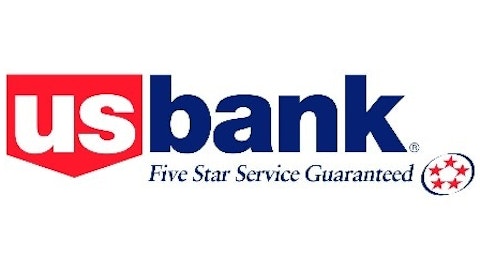
Single-loan securities are hitting the big time
This year has seen a real boost in CMBS activity, which could reach $85 billion by the end of 2013. Most CMBSes, much like those backed by home loans, include a large number of diverse loans packaged together, then sliced and sold in tranches that are rated according to risk.
But CMBSes based on a single loan have been gaining momentum since early last spring. Last March, JPMorgan Chase & Co. (NYSE:JPM) offered a $125 million instrument based on a loan on the Seven World Trade Center in New York City, and Bank of America Corp (NYSE:BAC) Merrill Lynch teamed up with Deutsche Bank AG (USA) (NYSE:DB) for a $324.8 million offering made up of a single loan on 261 restaurants. In April, a bigger deal, backed by a $412 million loan on the Fontainebleau Miami Beach Resort, hit the market — and it’s been uphill from there.
Part of the $12 billion in single-loan CMBSes sold this year occurred in March, when Wells Fargo & Co (NYSE:WFC) originated a $310 million loan on the Equitable Building, owned by Silverstein Properties — which essentially refinanced a CMBS mortgage originally taken out on the building in 2006. Bank of America put in a bid on this deal, too, showing that competition for these deals is heating up.
Less diversity, higher risk, dubious ratings
The Wall Street Journal notes that these type of investments have seen a lot less action since the financial crisis, since the reliance on only one loan is considered quite risky. But low interest rates have increased investor appetite for yield and, therefore, risk. Also a factor is that ratings agencies like Standard & Poor’s are often giving these products very high investment ratings, as well, fueling speculation that this entity in particular is easing standards in order to get a slice of the pie.
Recently, S&P has rejiggered its capitalization rate for single-loan rating parameters, muting the impact of economic conditions such as higher interest rates upon the expected income that the subject property could produce. A spike in interest rates, of course, could increase the risk of default — and make refinancing problematic.
Fitch Ratings, on the other hand, has stated that many of the deals being highly rated by others would not have garnered such high marks from its own analysts. Similarly, Moody’s has also warned that some recent deals are not deserving of the high-quality ratings other agencies have bestowed upon them.
Investor, beware
Still, there seems no shortage of investors for these products, despite the questions about risk. Even with yields so low, investors should consider the unusual debate on the subject of riskiness among the rating agencies — as well as the fact that these loans seem to closely resemble something like a home equity loan on multimillion-dollar commercial properties — as warning signals.
With CMBSes underpinned by pools of loans, at least, if one goes sour, the entire investment won’t crumble — not true of single-loan bonds. With odds like those, I think investors would be wise to sit out this particular venture.
The article Looking for Big Yields? Think Twice Before Investing in These Securities originally appeared on Fool.com and is written by Amanda Alix.
Fool contributor Amanda Alix has no position in any stocks mentioned. The Motley Fool recommends Wells Fargo. The Motley Fool owns shares of Bank of America, JPMorgan Chase, and Wells Fargo.
Copyright © 1995 – 2013 The Motley Fool, LLC. All rights reserved. The Motley Fool has a disclosure policy.
